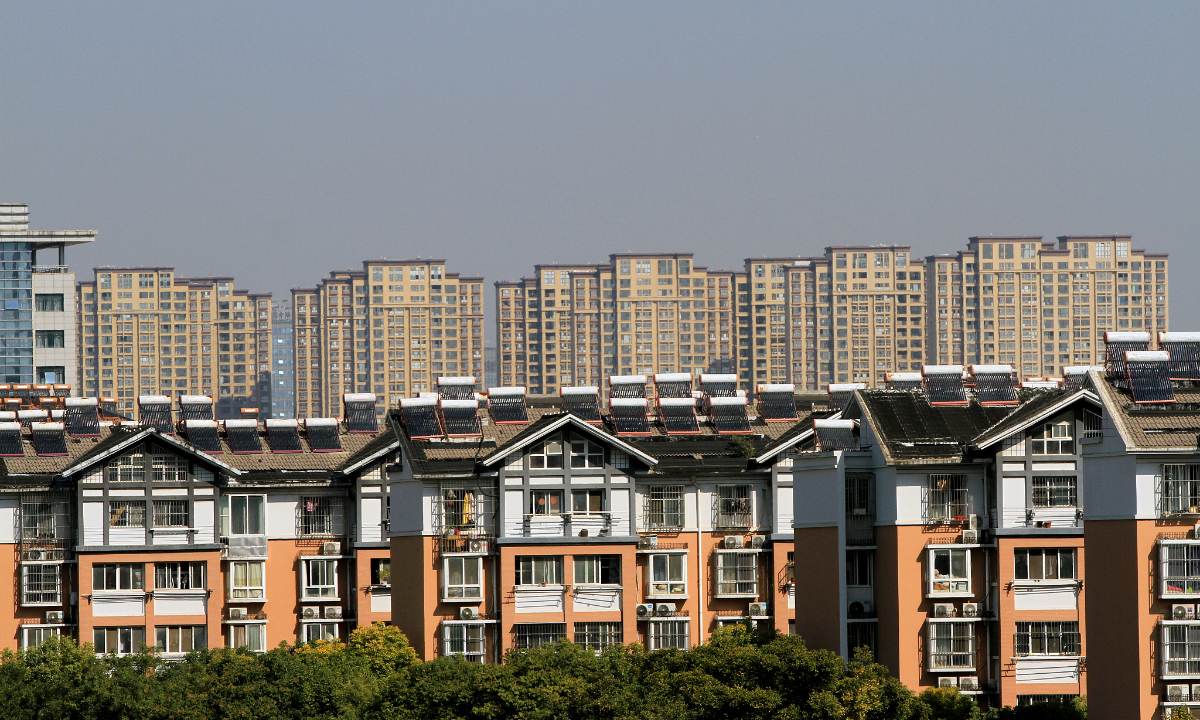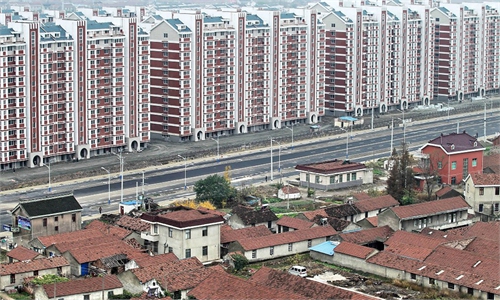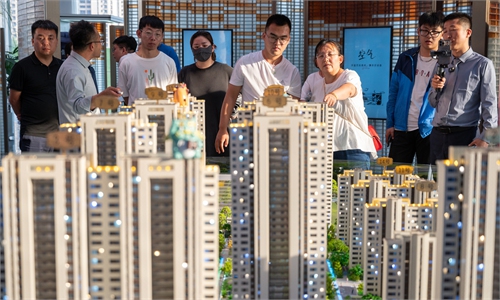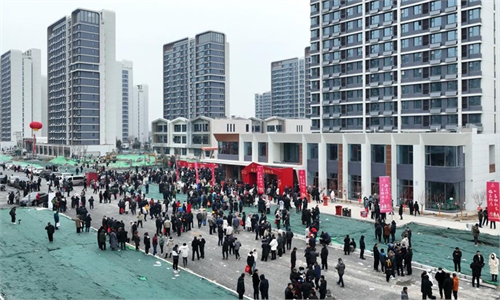China’s housing ministry vows to stabilize real estate industry, foster new development format in 2025

Real estate market. Photo:VCG
The Ministry of Housing and Urban-Rural Development held its yearly work conference in Beijing from Tuesday to Wednesday, laying out its 2025 objectives, with a focus on further stabilizing China's real estate market. The ministry noted that it will work to establish a new development model for the real estate sector and accelerate urban housing renovation projects in Chinese cities.
In 2025, the ministry will fully harness the significant growth potential in housing and urban-rural development, more vigorously safeguard and improve living standards, and enhance measures to identify and mitigate underlying risks, the China Construction News reported on Wednesday.
"With unleashing the huge potential for a steady growth a priority in the country's housing task next year, localities should consider property development in a large picture and focus on stabilizing growth and unlocking demand potential," Yan Yuejin, research director at Shanghai-based E-house China R&D Institute, told the Global Times on Wednesday.
The ministry will step up efforts to unleash housing market demand while improving market supply in the new year. The ministry noted that existing housing policies and additional pro-growth stimulus measures will be firmly implemented to ramp up effective market demand for housing.
And, greater efforts will be made to advance the renovation of rundown "urban villages" in Chinese cities, by rolling out direct compensation for their renewal. On the basis of renovating an additional 1 million "urban village" housing units, the government will continue to expand the scale of downtown residential old-housing renovation to eliminate hidden safety hazards and enhance the living conditions of residents, the meeting noted.
"According to the meeting, housing provident fund policies are expected to be strengthened in 2025, with more local governments anticipated to take additional measures," Yan said.
To improve market supply, the ministry said that the construction of new commercial homes will be strictly regulated to better optimize the existing housing stock. The supply of government-subsidized homes is set to increase to address the housing needs of new residents, young people, and low-income families.
More work should be done to facilitate the formation of a new development model for the important real estate sector, taking into account various market variables, the ministry noted. Also, the ministry will continue to advance reforms in the property selling system to encourage the sale of completed homes while improving supervision of property presale funds.
While efforts will be made to reduce inventory levels next year in traditional commercial housing sector, stepped-up efforts are expected to increase the supply of subsidized housing, Yan said.
The ministry will accelerate the establishment of a safety management system for the entire housing life-cycle to ensure greater housing safety. And efforts will focus on enhancing supervision across all stages of the real estate market in order to protect the legitimate rights and interests of the residents.
Recently, China's real estate market has shown increasing signs of stabilization with the implementation of a package of the government's supportive policies.
According to the ministry, new apartment transactions recorded both year-on-year and month-on-month growth in October and November. A total of 3.38 million housing units have been delivered so far this year, meeting the pre-set target.
At the Central Economic Work Conference held in early December, Chinese policymakers decided that continued efforts are needed to reverse the downturn in the real estate sector, rationally manage the supply of urban land designated for housing development, and promote the establishment of a new model for the industry.



